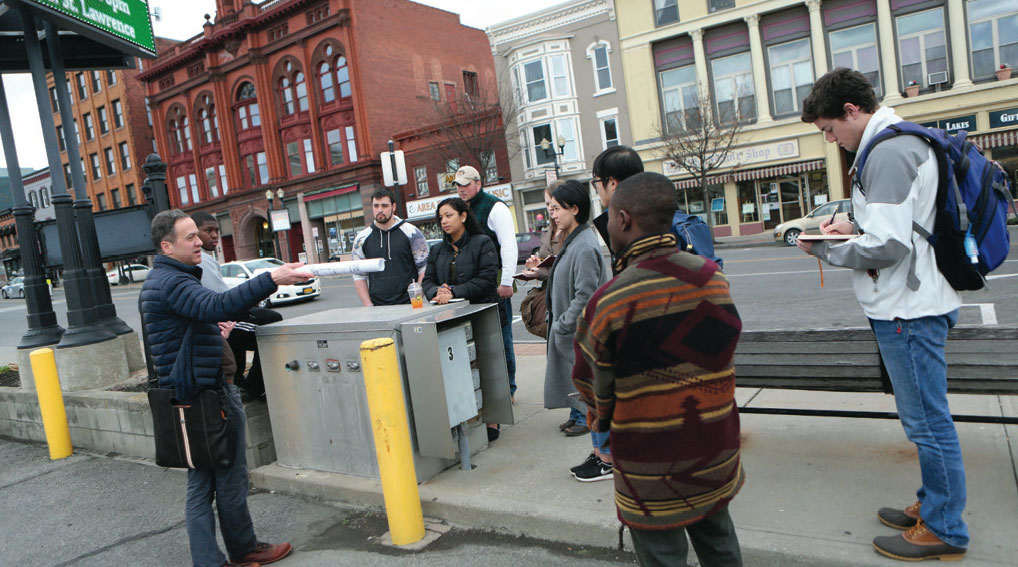The Pulteney StreetSurvey

Participants in the NYC Behind the Scenes program, near Times Square, ca. 2019.
The Classroom & Beyond
VISIONARY EDUCATION.
Teaching and learning at HWS have adapted to the needs of the era and the campus community. In many cases, the curriculum has augured the future of higher ed, with some of the nation’s earliest programs in women’s studies, gender and sexuality, Africana studies and Asian languages and cultures. The Colleges remain at the leading edge of global education (ranked consistently among the nation’s best), experiential learning (from “Two Cities” and the semester in D.C., to today’s guaranteed internship program), and research grounded in the local environment (see the work of the Finger Lakes Institute, or just about any science course). During that 200-year evolution, however, the purpose has remained constant. As former Dean Clarence Butler L.H.D. ’06 once said: “The role of the College is…not to implant in each of its students a vision, but to challenge, cultivate, stimulate what is already there, but perhaps not yet seen or felt.”
 GENIUS AND EXPERIENCE.
GENIUS AND EXPERIENCE.
Early communiques and course schedules hint at the liberal arts and sciences of the future HWS. The “English Course” curriculum, as described in an 1824 pamphlet, was intended to educate students in “the practical business of life, by which the Agriculturist, the Merchant, and the Mechanic may receive a practical knowledge of what genius and experience have discovered.” This well-rounded approach endures today, as the pursuit of knowledge takes students, alongside faculty mentors, across campus and beyond — to Geneva, neighboring communities and around the world. Photo: Students (and possibly professors) in the reading room of the old library in the Middle Building, which once stood between Geneva and Trinity halls, ca. 1875–80.
 TEACHING STUDENTS “TO LIVE, NOT MERELY TO MAKE A LIVING.
TEACHING STUDENTS “TO LIVE, NOT MERELY TO MAKE A LIVING.
That is the aim of the Hobart curriculum” (The Echo, ca. 1950). Until the early 1970s, the Western Civilization courses were the academic centerpiece of that aim. Western Civ was designed, as the 1947 yearbook put it, “to develop in the student an intelligent and urgent sense of his responsibility for the moral and civic welfare of the community…[as well as] to furnish him with a breadth of basic education which will enable him to choose his future career wisely and… follow his chosen career with success.” Photo: A Western Civ lecture in Coxe Auditorium, ca. 1949–50.

Associate Professor of Art and Architecture Jeffrey Blankenship and students discussing a class project based in downtown Geneva, ca. 2016.
